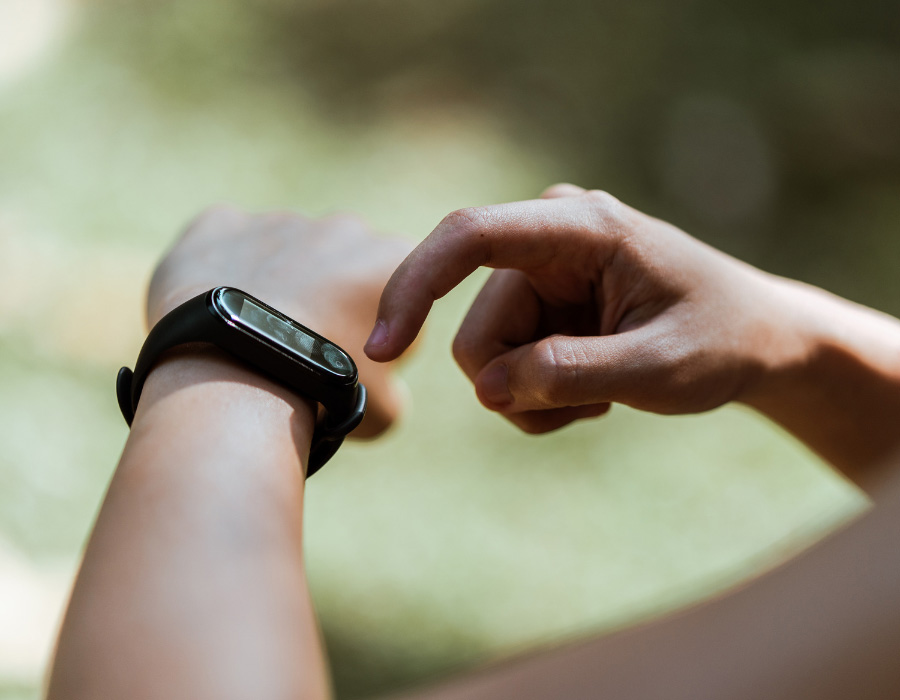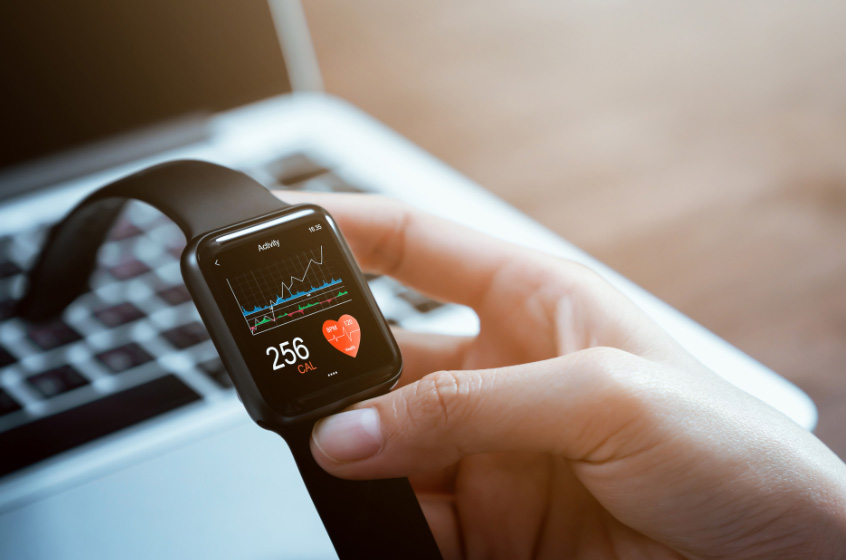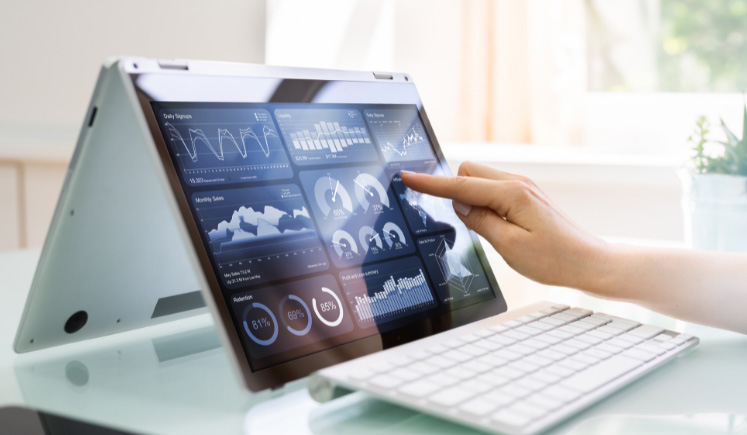As our lives become increasingly connected and data-driven, the concept of digital health has emerged as a powerful force in healthcare.
Digital health encompasses a range of technologies, including health apps, electronic health records (EHRs), telehealth, and remote monitoring, all aimed at leveraging digital tools to improve patient outcomes and enable proactive healthcare.
Accompanying the rise of digital health is the rapid growth of wearable technology. From fitness trackers to smartwatches and biosensors, wearables have become extremely common.
These devices seamlessly integrate into our lives, capturing health-related data and providing valuable insights into our well-being.
In this blog, we will delve deeper into the impact of digital health and wearable technology on preventive medicine. We will explore how these technologies collect personalised data, and look at how this can provide actionable insights.
The Rise of Wearable Technology
Wearable technology has emerged as a ubiquitous presence in our lives, revolutionising the way we monitor and manage our health.
In this section, we will explore the different types of wearable devices and their impact on preventive medicine.

- Fitness Trackers and Activity Monitors:
- Wristbands and clip-on devices that track physical activity levels, steps, distance, calories burned, and heart rate.
- Encourage regular physical activity and promote cardiovascular health.
- Help individuals maintain an active lifestyle and reduce the risk of chronic diseases.
- Smartwatches for Health Monitoring:
- Advanced sensors and health tracking features integrated into smartwatches.
- Measure heart rate, track sleep patterns, detect stress levels, and perform electrocardiograms (ECGs).
- Provide deeper insights into health, identify patterns, and support preventive care.
- Integrate with mobile apps for personalised health recommendations and reminders.

- Biosensors and Medical Wearables:
- Wearable devices that monitor specific health parameters.
- Examples include glucose monitors for diabetes management, continuous blood pressure monitors, and oxygen saturation measurement devices.
- Enable individuals to track vital health metrics, facilitating early detection and proactive management of health risks.
- ECG and Heart Rate Monitoring:
- Wearable devices with built-in ECG capabilities to record heart’s electrical activity and detect irregularities.
- Real-time monitoring enables early intervention and reduces the risk of cardiovascular events.
- Continuous heart rate monitoring helps individuals assess fitness levels and make informed exercise decisions.
- Wearable Sleep Trackers:
- Wrist-worn devices that monitor sleep patterns, duration, and quality.
- Analyse movement, heart rate, and breathing patterns during sleep.
- Provide insights into sleep habits and help identify potential sleep disorders.
Collecting Data

Wearable technology and digital health solutions play a crucial role in collecting personalised health data, providing valuable insights for preventive care.
The devices enable the continuous monitoring of health parameters such as heart rate, blood pressure, sleep patterns, activity levels, and stress levels. This ongoing monitoring allows for the early detection of abnormalities and potential health risks.
The vast amount of data collected by wearables and digital health solutions means that personalised care can be formulated from this. Advanced algorithms analyse the data to identify patterns, correlations, and trends specific to an individual’s health profile. This data-driven personalisation supports tailored recommendations, goal setting, and behaviour modification strategies.
Continuous monitoring by wearables can also mean that signs of health conditions may be picked up at an early stage.
With early detection, means that individuals can take action to implement preventative measures to avoid the development of disease or illness.
The Challenges
Digital health and wearable technology face several challenges that need to be overcome to maximise their benefits and ensure equitable access:
- Data Privacy and Security: Protecting sensitive health data from unauthorised access and breaches.
- Interoperability and Data Integration: Enabling seamless exchange and use of data across different devices and platforms.
- Accuracy and Reliability of Data: Ensuring the accuracy and consistency of data collected by wearables.
- User Engagement and Behaviour Change: Motivating sustained engagement and promoting behaviour change.
- Equitable Access and Health Disparities: Addressing disparities in access and utilisation of these technologies.
- Ethical Considerations: Balancing data-driven insights with individual privacy rights and responsible use of technology.
In Conclusion
As we continue to advance in the digital age, it is crucial to strike a balance between harnessing the benefits of these technologies and addressing ethical considerations.
Protecting privacy rights, ensuring data accuracy and reliability, and promoting user engagement and behaviour change are key factors in the responsible use of digital health and wearable technology.
Digital health and wearable technology have the power to transform preventive medicine by empowering individuals, facilitating early detection, and improving overall health outcomes.
With continued innovation, collaboration, and a focus on addressing challenges, this may unlock the full potential of the technologies and create a future where preventive healthcare is accessible to all.
